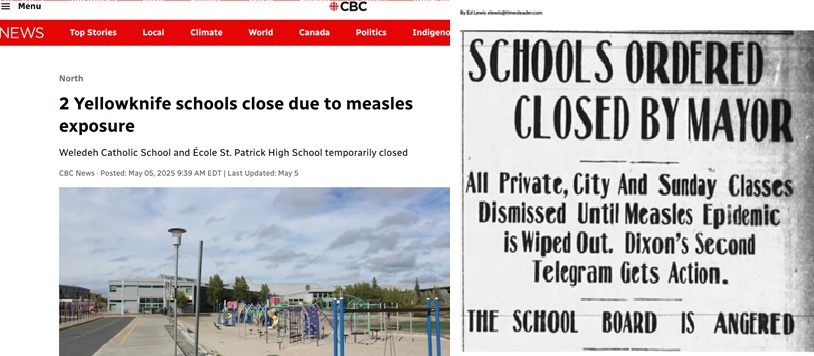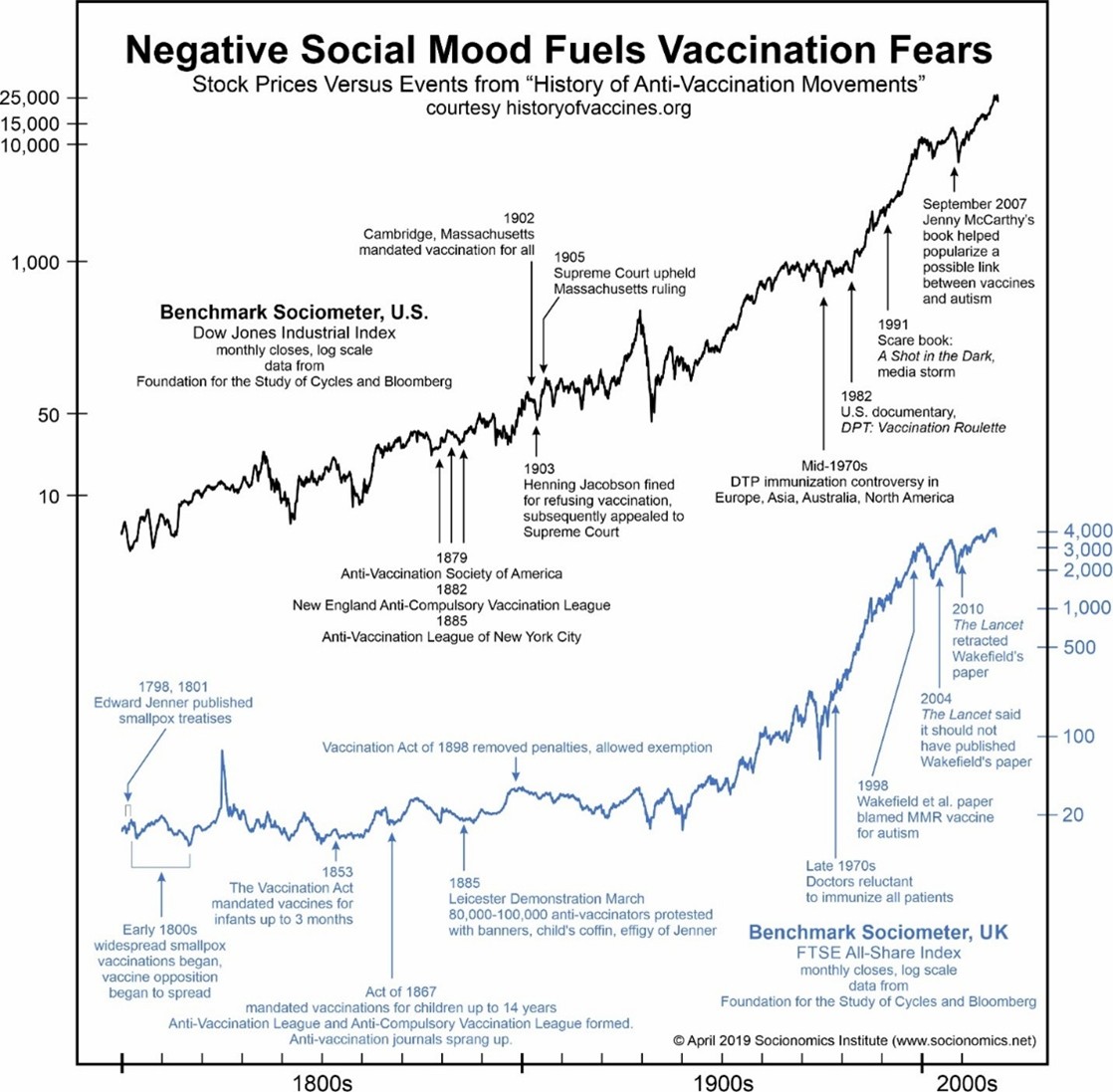There IS no immunity for social mood!

The news story on the left comes from CBC News on May 5, 2025, as the 2025 measles outbreak reaches a “grim milestone” – the most reported cases in the U.S. in 33 years, sparking school closures from Canada to Arizona to Texas and on.
The news story on the right is from the Evening News, Jan. 16… 1912, five decades before the measles vaccine was created. Today’s outbreak is avertible. It’s just that less people are opting to use the recommended method of prevention. From Harvard Health Publishing on July 9:
Measles outbreaks are highly preventable. It’s estimated that when 95% of people in a community are vaccinated, both those individuals and others in their community are protected against measles.
But nationally, measles vaccination rates among school-age kids fell from 95% in 2019 to 92% in 2023…Declining vaccination rates are common in other parts of the US, too, and that leaves many people vulnerable to measles infections.
In May 2019, analyst Alan Hall made a strong case that the modern wave of vaccine hesitancy is driven by negative social mood, which is reflected in the performance of stocks. Here is a clip from his report:
The anti-vaccination movement involves only a small percentage of people, but a few unvaccinated people are all that measles, perhaps the most infectious disease there is, needs to spread. The same is true of other diseases.

When the viral load of social mood is high enough, it will always impact every area of the collective human experience, from diseases to democracy, pop culture, politics, fashion, music and on.
For a limited time, we’re offering Alan Hall’s special, 8-page report from the May 2019 Socionomistfor just $15. This insightful paper will help you prepare for what may be coming next.
OR – for those familiar with our iconoclastic work, consider an annual subscription to The Socionomist and get instant access to our entire library of peerless issues dating back to July 2004!
